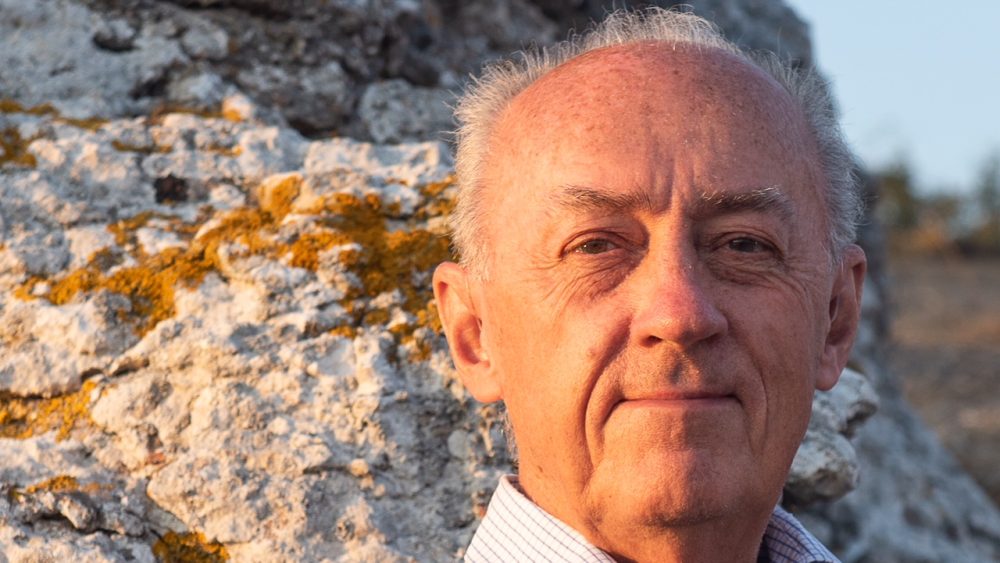…Allan Larsson!
You are a man with a very interesting career, both past and present. Not only were you the Finance Minister of Sweden (1990-1991) and chair of Lund University (2004 – 2012), but you have also been a member of UN Secretary-General Kofi Annan’s expert panel for youth employability, worked as a journalist, trade unionist, politician (social democrat) and public servant. You have been the Director General of the Swedish Labour Market Board and Director General in the European Commission, as well as chair of Swedish Television. On top of that, you have recently released your third book, which also makes you an author.
1.Out of all these important roles, which one was the most exciting on a personal level?
“Always the one I was involved with at that particular point in time!”
2. As chair for Lund University and Chief Negotiator for Sweden’s campaign to host ESS, you were highly involved in the work that followed regarding ESS and MAX IV, which is also the topic of your most recent book I vetenskapens värld (In the world of science). Why was it important for you to write this book?
“Everyone has a story to tell; everyone should write their story down. Above all, I wanted to describe the ‘team’ – everyone at the University, ministries, the Swedish Research Council and Vinnova, regions and municipalities, as well as embassies that have all been part of making the significant research investments in Lund possible.”
3. In one passage, you describe how a Stanford researcher said that Lund, thanks to MAX IV and ESS, has exceptional possibilities of becoming a ‘Scientific Capital’. What do you (or did he) mean by that, in practice?
“The main focus on materials science research has been in Germany, the United Kingdom and France. Now it is moving to Lund/Copenhagen. ESS and MAX IV have become two magnets that attract researchers to Scandinavia and draw research funding to projects that would never previously have been possible.”
4. What are your thoughts on the possibilities of ESS and MAX IV to solve global problems?
“That is a question I, too, have asked the researchers, and they are unanimous in their response. Thanks to ESS and Max IV, they can achieve a much better understanding of life sciences and they can improve the development of materials in a way that was previously not possible. It will have crucial significance for health, climate and other big challenges”.
5. Do you have particularly high expectations of any specific research areas?
“My hopes are based on the researchers’ assessments of areas with high expectations, which are in the areas of health and climate.”
6. What are the greatest challenges for ESS and MAX IV in the future and what is required to tackle these?
“It is a major task for Sweden to act as a host for ESS and MAX IV and it is a major task for Lund to make the significant leap to become a Big Science university. Researchers will handle the science, but Sweden and Lund will have to handle all the work surrounding the research. It is a challenge of the sort yet to be faced by the University. I am convinced that Lund will fulfil the expectations that were the basis for the decision to build ESS in Lund.”
7. Your first memoir, Bryta ny mark (Breaking new ground) came out in 2014 and the second, Min europeiska resa (My European journey) was published in 2015. This book, I vetenskapens värld (In the world of science) came out last spring. Are there more books in the works, or what is Allan Larsson working on this autumn?
“Yes, I’m currently writing a new and updated version of a book published by a British scientific journal in 2017. The title is How can we understand the times we are living through? This new book will be in Swedish and will include what is happening now with Brexit, Trump and other right-wing projects. I write about the long waves in politics. I question whether the nationalism, xenophobia and protectionism we are now seeing is the next long wave, which we and our children and grandchildren will live with over the next 30-40 years. Or, is there an alternative, a breakwater that will put a stop to the wave from the right?”

